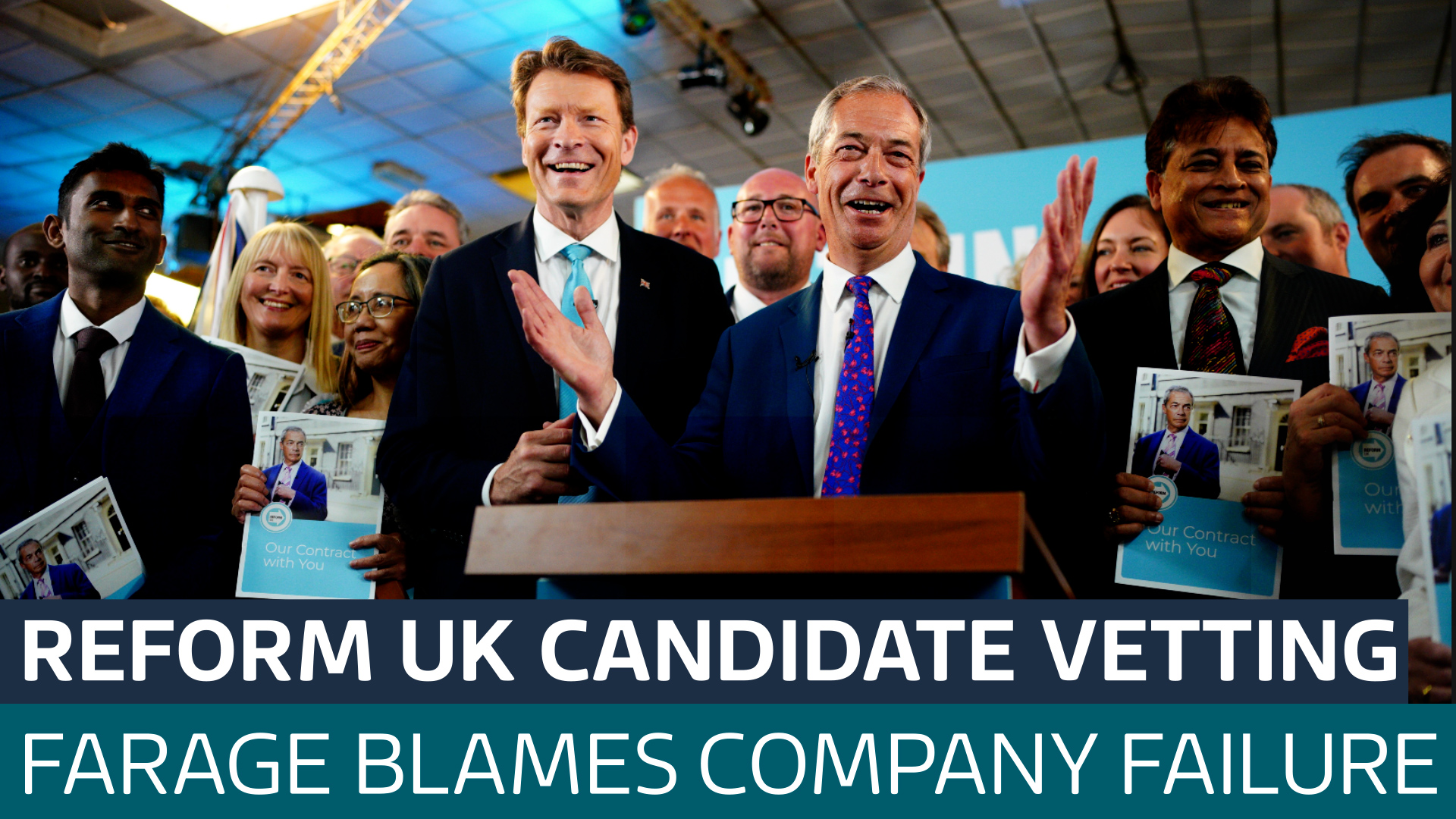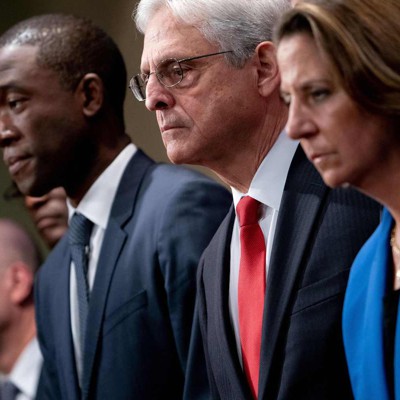Is Nigel Farage's Reform Party A Force For Change, Or Just Complaining?

Table of Contents
Reform Party's Policy Positions: Substance or Soundbites?
The Reform Party's policy platform is a central point of contention. Are its proposals concrete and impactful, or simply attention-grabbing soundbites? Let's examine key areas:
Immigration Policy: The Reform Party advocates for stricter immigration controls, a core tenet of its platform.
- Specific policy proposals: They call for reduced immigration numbers, stricter border controls, and a points-based system prioritizing skilled workers.
- Comparison with other parties: While other parties acknowledge the need for controlled immigration, the Reform Party's stance is considered significantly more restrictive than that of the Conservatives or Labour. The Liberal Democrats hold a more pro-immigration stance.
- Potential impact and criticisms: Critics argue that such strict measures could harm the economy by limiting access to essential workers and negatively impact social cohesion. Supporters counter that controlled immigration is vital for national security and protecting public services.
Economic Policies: The Reform Party's economic platform is heavily influenced by Brexit and its perceived economic consequences.
- Key economic proposals: They advocate for significant tax cuts, deregulation, and a focus on free trade agreements outside the European Union.
- Feasibility and potential consequences: The feasibility of these proposals is debated, with economists raising concerns about potential impacts on public finances and the stability of the UK economy.
- Comparison with mainstream economic policies: These policies differ significantly from the more interventionist approaches favoured by Labour and the more cautious approach of the Conservatives.
Other Key Policies: Beyond immigration and economics, the Reform Party holds positions on other crucial policy areas.
- Summary of stance on key policy areas: While the party hasn't fully detailed policies on all areas, their stance generally leans towards Euroscepticism, a conservative approach to social issues, and a more skeptical view of environmental regulations compared to mainstream parties.
- Relevance to current political debates: Their positions frequently engage with ongoing debates on Brexit's long-term effects, the NHS, and the cost of living crisis.
- Comparison to policies of other UK political parties: This comparison often highlights the Reform Party's positioning as a distinct alternative to the established parties.
The Reform Party's Electoral Performance and Influence:
Analyzing the Reform Party's electoral performance and influence provides insights into its impact on the political landscape.
Election Results: The Reform Party's electoral success has been mixed.
- Specific election results (vote share, seat gains/losses): While they haven't achieved widespread national success, they have secured wins in local elections and garnered a notable share of the vote in specific regions, often outperforming expectations in certain constituencies.
- Analysis of electoral success/failure: Their success is often linked to specific local issues and voter dissatisfaction with established parties. Their failure to gain significant national representation reflects the challenges of translating localized support into broader national influence.
- Geographic distribution of support: Support is concentrated in areas with a history of Euroscepticism and strong anti-establishment sentiment.
Influence on the Political Agenda: Despite limited electoral success, the Reform Party has influenced the political discourse.
- Examples of influencing government policy or public opinion: By consistently highlighting specific issues, they've pushed other parties to address these concerns, albeit often indirectly.
- Coverage in mainstream media: The Reform Party and Nigel Farage frequently receive significant media attention, influencing the public debate on key policy areas.
- Impact on other political parties' agendas: The party's presence forces mainstream parties to acknowledge and respond to concerns raised by the Reform Party, subtly shaping the political landscape.
Criticisms and Controversies Surrounding the Reform Party:
The Reform Party and its leader have faced numerous criticisms and controversies.
Accusations of Populism and Extremism: The party is frequently accused of employing populist rhetoric and exhibiting extremist tendencies.
- Specific examples of controversial statements or actions: Specific instances of controversial statements and actions need to be examined in context, considering their impact and the responses they elicited.
- Responses from the party and its supporters: Analyzing the party's responses and the justifications offered by their supporters is crucial for a balanced assessment.
- Assessment of the impact of these controversies: The long-term consequences of these controversies on public opinion and the party's standing need to be considered.
Funding and Transparency: Concerns have been raised regarding the party's funding sources and financial transparency.
- Sources of funding (donations, membership fees): Investigating the sources of funding can help determine any potential influence on policy decisions.
- Level of transparency compared to other parties: Comparing the party's financial transparency with that of other political parties provides a benchmark for assessing its openness and accountability.
- Potential ethical concerns: Any potential ethical concerns related to funding and financial practices require careful scrutiny.
Conclusion:
The Reform Party's impact is a complex issue. While their electoral achievements remain limited, their influence on the political debate and their ability to capture specific voter concerns are undeniable. They have successfully tapped into anti-establishment sentiment and presented themselves as a voice for those dissatisfied with mainstream parties. Whether this translates into genuine political change or remains primarily a platform for expressing discontent is a matter of ongoing debate. Their policies, while clearly defined in certain areas, lack the comprehensive detail found in the platforms of larger parties. The controversies surrounding the party also significantly impact its credibility and ability to be seen as a force for positive change.
What do you think: Is Nigel Farage's Reform Party truly a force for change? Further independent research into the party's policies and activities is crucial for informed participation in democratic processes.

Featured Posts
-
 Assessing Apples Competitive Advantage In Ai
May 10, 2025
Assessing Apples Competitive Advantage In Ai
May 10, 2025 -
 Ray Epps V Fox News A Deep Dive Into The Jan 6th Defamation Lawsuit
May 10, 2025
Ray Epps V Fox News A Deep Dive Into The Jan 6th Defamation Lawsuit
May 10, 2025 -
 Will Apples Ai Strategy Lead Or Lag
May 10, 2025
Will Apples Ai Strategy Lead Or Lag
May 10, 2025 -
 Europa League Preview Brobbeys Power A Key Factor
May 10, 2025
Europa League Preview Brobbeys Power A Key Factor
May 10, 2025 -
 Us China Trade Talks And The Shadow Of The Fentanyl Crisis
May 10, 2025
Us China Trade Talks And The Shadow Of The Fentanyl Crisis
May 10, 2025
Latest Posts
-
 East Palestines Toxic Legacy Building Contamination After The Train Derailment
May 10, 2025
East Palestines Toxic Legacy Building Contamination After The Train Derailment
May 10, 2025 -
 Toxic Chemical Residue From Ohio Derailment Months Long Impact On Buildings
May 10, 2025
Toxic Chemical Residue From Ohio Derailment Months Long Impact On Buildings
May 10, 2025 -
 Millions Stolen Inside The Office365 Hack Targeting Executives
May 10, 2025
Millions Stolen Inside The Office365 Hack Targeting Executives
May 10, 2025 -
 The Effectiveness Of Androids New Design In Attracting Gen Z
May 10, 2025
The Effectiveness Of Androids New Design In Attracting Gen Z
May 10, 2025 -
 Federal Charges Hacker Made Millions From Executive Office365 Accounts
May 10, 2025
Federal Charges Hacker Made Millions From Executive Office365 Accounts
May 10, 2025
